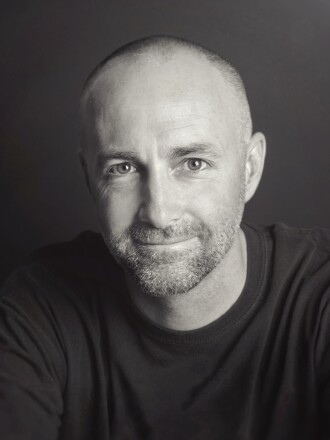Buy Now → License to Travel: A Cultural History of the Passport, $25, Bookshop.org
Passports have the ability to bring travelers to exciting new locations in pursuit of new adventures—or to plunge them into monotonous bureaucratic limbo.
In his new book, License to Travel: A Cultural History of the Passport (out October 25), Patrick Bixby explores the (perhaps) surprisingly complex and ancient history of the passport, as well as its modern-day significance. Bixby takes readers on a journey from the origins of the passport in ancient Egypt and Han-dynasty China to the collapse of the U.S.S.R. and modern refugee camps. License to Travel delves into the evolution of the passport through the tales of historical figures, celebrities, artists, and writers like Langston Hughes, Pablo Neruda, and Gertrude Stein, as well as movies like The Grand Budapest Hotel (2014) and The Terminal (2004).
It also neatly lays out the mighty power of the passport and the pains of passport inequality—whether you have a passport or not and what kind you have could affect how you plan a vacation. But having a “bad” passport can also restrict your ability to move across certain borders and consequently affect the course of your life. Passports issued by economically powerful countries are more likely to get their citizens into the doors of other countries with visa-free travel. Passports issued by less economically developed countries are more likely to give travelers trouble when they try to cross borders or prohibit their movement altogether.

Patrick Bixby is an associate professor of English at Arizona State University.
Courtesy of University of California Press
With License to Travel, Bixby also makes the argument that applying and carrying a passport is not just an administrative hoop that travelers must jump through: Having a passport gives us the freedom to travel—and the freedom to thrive.
You’re a professor of English at Arizona State University—how did you get interested in writing about travel?
As a scholar of Irish studies, I’ve been fortunate to travel a lot to Ireland and elsewhere. When I started looking into writing about passports, the emotions and imaginings they produce, one of the first things that came to mind was that anxiety you feel if you can’t locate yours for just five minutes. It’s visceral.
I began to look more closely at the passports of modernist writers and artists because they were among the first generation that was required to travel with passports, the same requirements we’re subject to now. I began to see how these documents tell stories in remarkable ways. They’re kind of summaries of a person’s life. All of those stamps, personal details, and photographs tell a story about someone in a way that very few other kinds of historical documents do.
I liked how you told the story of the passport through the experiences of famous historical figures, celebrities, and even movies. Why did you feel that this was the best way to tell the cultural significance of the passport?
There are other histories of the passport written by political scientists and sociologists, and they’re very informative. They’re very useful for my work, but they can be a bit dry.
I’m a cultural historian, at least that’s what I like to call myself. I just kept coming across more and more humorous, fascinating, interesting anecdotes about people with passports. It just seemed a lot more interesting to tell the story of the passport this way than how it had been told previously. All of this material provided a great way to relay this history but also to understand our contemporary moment and to understand how our geopolitics operate. The migrant crisis, the Trump-era travel ban, issues at the U.S.–Mexico border, etcetera. All of them are related in some important way to how our passports function.

A photocopy of Langston Hughes’ passport application.
Courtesy of the National Archives and Records Administration
Do you have a favorite anecdote from the book that you think highlights the importance of the passport?
That of Frederick Douglas and his passport. He was born into slavery. But even during his youth as an enslaved person, he had talked to people who had traveled. He read quite a lot, and he had a wanderlust.
He made his escape to freedom by using a passport-like document, a sailor’s pass—that was an identity document for travel. But even after he gained his freedom, he wasn’t able to attain a U.S. passport because of the Dred Scott decision (an 1857 Supreme Court ruling that American citizenship would not extend to people of Black African descent).
He tried for many years to get one, and more than anything, the passport became an emblem of his citizenship—of being a fully recognized citizen of the United States. He finally got one when he was almost 70 years of age and went on this amazing trip through Europe and even across the Mediterranean to North Africa. He finally got to satisfy the wanderlust that he had harbored within himself for decades, even as he overcame the antagonism of those who were trying to prevent him from having a passport.
What makes travel special to you?
It’s really important for anyone who can to get out there and meet people who are different from themselves. I like landmarks and beautiful vistas and all that as much as the next person, but for me, travel is all about encountering other people. The camaraderie that one can sometimes find with people elsewhere in these surprising, unexpected, and amazing ways—that’s what really gets me excited about travel.











